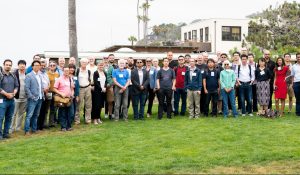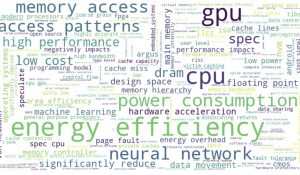


Publication Trends at ISCA
Recently, we conducted a detailed study of some notable publication trends at ISCA. We used the abstracts for all the papers published at ISCA from 1973, when it was inaugurated, to 2018. This blog summarizes the main findings of the detailed article which can be...
A Case for Case Studies
Consider the following thought experiment. You are on the program committee of a conference like ASPLOS or PLDI, and your committee must choose one of the following two papers for publication. Paper 1 describes a new program optimization and its implementation in...
New Blog Editor
Nearly two and a half years ago, I welcomed you to Computer Architecture Today as the founding editor. Today I bid my farewells. Creating a blog was the wonderful idea of the SIGARCH Executive Committee. It took six months and input from several individuals to arrive...
Save IEEE Computer Architecture Letters
(This blog post is adapted from a presentation made by Natalie Enright Jerger at the ISCA 2019 business meeting.) What is CAL? IEEE Computer Architecture Letters (CAL) was established 17 years ago to provide the computer architecture community with a rapid...
ISCA 2019 Summary
Every four years, various research conferences spanning different areas of Computer Science are co-located together into a week-long coordinated meeting, Federated Computing Research Conference (FCRC), held in a common place. In 2019, the common place is Phoenix,...
Farewell and Passing the Torch
The SIGARCH elections have concluded and we welcome the new SIGARCH leadership! The new executive committee (EC) will be: Babak Falsafi (Chair), Natalie Enright Jerger (Vice-chair), Karin Strauss (Treasurer), Sarita Adve (Past chair), Joel Emer, Boris Grot, Martha...
Sure, We Have Systems For ML But How About ML For Systems?
The past few years have seen an unprecedented increase in the number of systems targeting machine learning (ML) applications and deep learning in particular (Jeff Dean has compiled a telling graph on the exponentially increasing number of ML papers). From hardware...
Embench™: Recruiting for the Long Overdue and Deserved Demise of Dhrystone as a Benchmark for Embedded Computing
I. Why a New Embedded Benchmark The world will soon be deluged by tens of billions or even hundreds of billions of Internet of Things (IoT) devices, but we still don’t have a high quality, widely reported benchmark to fairly evaluate the embedded computers that power...
To Graduate Students and Assistant Professors in Computer Architecture
We would find it unacceptable for grading in a college-level course to be done by multiple TAs without any rubric or common guidelines. Why is it acceptable for our career-affecting review process?

